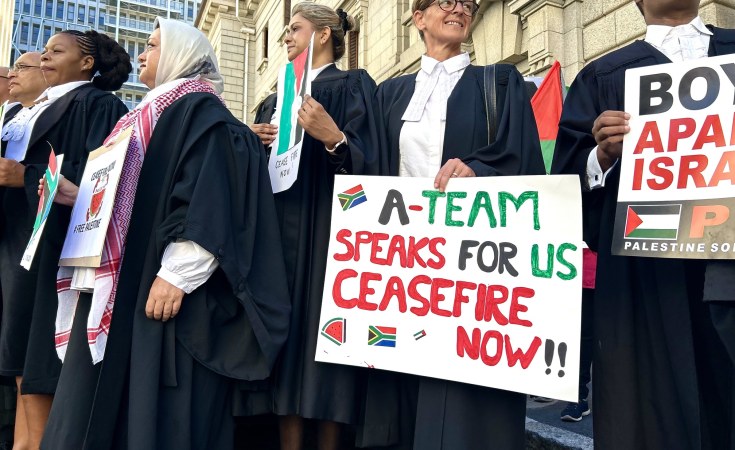With South Africa heading to the International Court of Justice (ICJ) in The Hague for acts committed by Israel in the context of its attacks on Gaza, President Cyril Ramaphosa says the country approached the court due to its opposition to the ongoing slaughter of the people of Gaza.
"As a people who once tasted the bitter fruits of dispossession, discrimination, racism and state-sponsored violence, we are clear that we will stand on the right side of history. It is our fervent hope that just as we were able to reconcile and make peace, that the peoples of Israel and Palestine will find a lasting, just peace," the President said on Wednesday in Johannesburg.
The ICJ in The Hague will begin hearings in the proceedings brought by South Africa against the State of Israel on Thursday.
Paying tribute to the life of globally renowned photographer, Dr Peter Magubane, President Ramaphosa called for the remembrance of the more than 100 journalists and media workers who have been killed in Israel's genocidal war on the people of Gaza.
Magubane, who was well-known for his images that captured experiences and struggles of black South Africans during apartheid, passed away on 01 January 2024 at the age of 91.
"When we look at the world today, we see journalists being arrested, persecuted and even killed for doing their job. Indeed, bearing witness to the truth is a revolutionary act. Standing firm for justice is what must define our humanity.
"As a country we can hold our heads up high that we have come very far from the days when Magubane and other journalists were censured, arrested and persecuted for practicing their craft.
"We can be proud that our intellectual property regime is robust and protects the rights of journalists, artists, cultural workers and all South Africans and enables them to safeguard and profit off their work," he said.
The President said in its 30th year since achieving democracy, South Africa's media and press freedom remains strong.
"The right to a free press is enshrined in our Constitution. As a country, we can hold our heads up high that we have come very far from the days when Magubane and other journalists were censured, arrested and persecuted for practicing their craft.
"We can be proud that our intellectual property regime is robust and protects the rights of journalists, artists, cultural workers and all South Africans and enables them to safeguard and profit off their work.
"Above all, we can be proud that the South African media continues in the tradition of Magubane by bearing witness to injustice, to wrongdoing and to malfeasance.
"Just as his generation of journalists held the powerful to account, we continue to count on today's generation of media workers to fulfil this important role without being hindered, obstructed, or censored," President Ramaphosa said.
Magubane's photographic career began in 1955 after he joined Drum magazine as a driver and messenger.
He soon became a darkroom assistant where his major assignment was covering the African National Congress 1955 convention.
The President affirmed the immense power of the Fourth Estate in shaping public opinion, in giving an impartial and unbiased account of the truth, and in supporting the development of a nation.
"As much as it is critical to point the lens in the direction of wrongdoing, I want to take this opportunity to call on the media to give South Africans an equally balanced view of the progress this country has achieved over the past 30 years.
"Of the progress in terms of educational outcomes, access to healthcare, basic services, constitutional freedoms, and fulfilment of the Bill of Rights. The South Africa of today is a vastly different place to the South Africa that was the canvas for Magubane's lens," the President said.
He said Magubane's work documenting apartheid helped shift global opinion against the regime.
"At a time when we strive to rebuild our country from a period of great hardship, your balanced work as men and women of the media has the potential to lift the nation's spirits, to inspire and give us courage, and to bring us hope.
"Let us bring too to the people of South Africa the stories of lives transformed, living standards improved, and those areas where there has been positive change. We count on you to be the conscience of a nation, but also the voice of the people, as Magubane was. As journalists you should not only be messengers of doom and gloom, but guardians of our democracy and merchants of hope," the President said.


